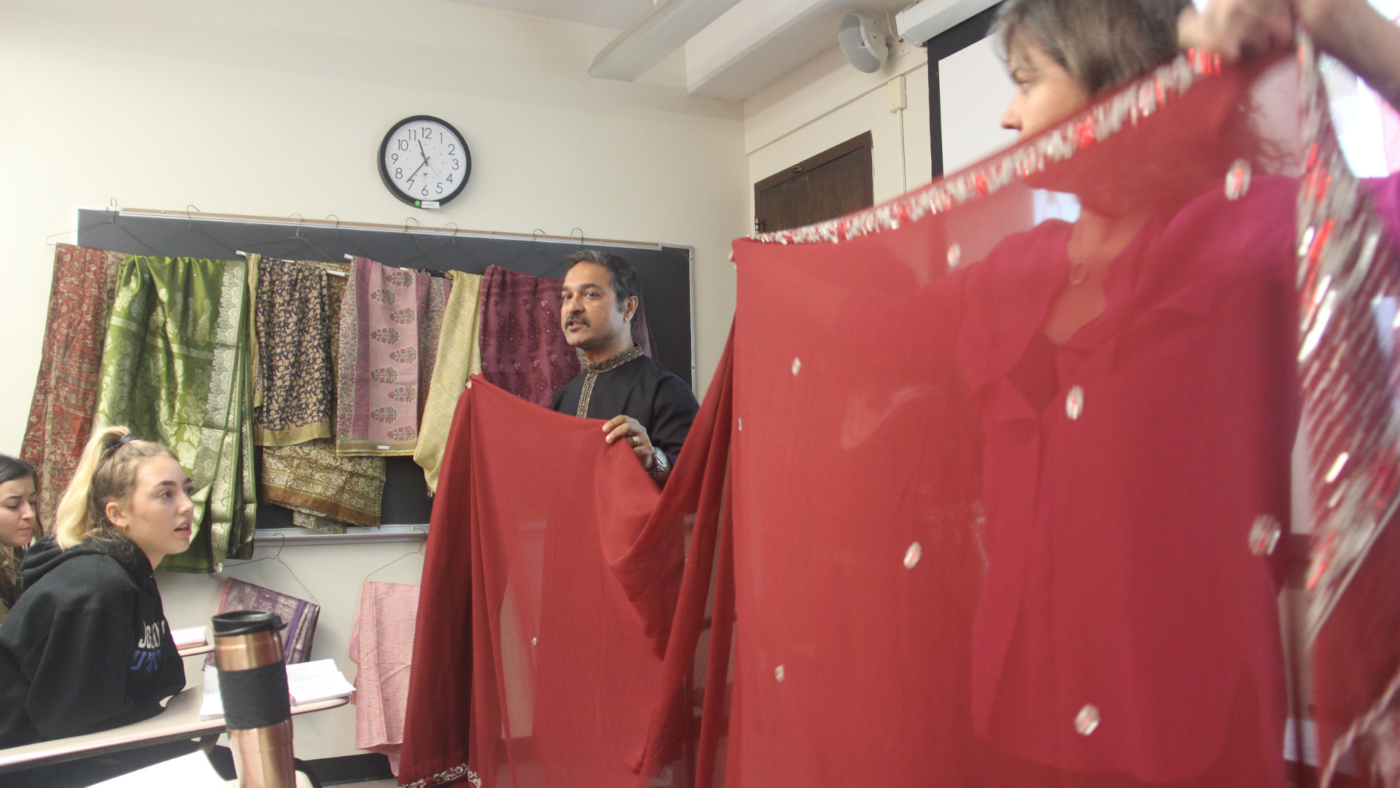Fulbright-Nehru Academic and Professional Excellence Fellow Dr. Ajay Joshi shared the intricacies of Indian theater with students and other community members in the United States.
January 2020

Dr. Ajay Joshi lives by a simple philosophy. “I never say no to any opportunity,” he says. A dentist by profession, Dr. Joshi also holds a Ph.D. in theater studies. He teaches and researches theater and the performing arts in India. A 2018-19 Fulbright-Nehru Academic and Professional Excellence Fellow at Rutgers, The State University of New Jersey, Dr. Joshi also specializes in print journalism and communication, and is involved in theater appreciation, workshops, specialized classes and administration.
“I was very fond of writing. Two years into my practice as a dentist, I did my master’s in journalism and mass communication because I wanted to hone my skills as a writer,” he says. Running his clinic in the morning meant that he could only take up writing assignments in the evening. Since most theater, music and dance programs happen in the evening, he developed a keen interest in the effective criticism of such art. “I am intrigued by all aspects of theater, but I wanted to develop the idea of being an effective audience as well,” he says. “What is the role of the critic and how can we be effective in the whole theatrical scenario?” Dr. Joshi’s plays, translated from Marathi to English, have been performed globally. He also teaches post graduate journalism courses at the University of Pune.
In 2015, while collating material for his first book, his co-author told him about the Fulbright-Nehru Fellowship. “I was intrigued, but was initially skeptical,” he says. “I wrote to various universities that had performing studies courses and departments, kind of thinking I would never hear back.” His project, an amalgamation of the complexities and intersectionality of Indian theater comprising caste, class and gender, was extremely appealing, and he soon started receiving letters of invitation from universities. He chose Rutgers, to teach a course on “Culture, Community and Theater: The Indian Perspective.” Dr. Joshi opted for a teaching fellowship because he wanted to share the intricacies of Indian theater with students and the larger community at Rutgers. He also wanted to learn and understand how such complexities were addressed in a different cultural context. Dr. Joshi says the four-month fellowship was fantastic. “The diversity and vibrancy of Indian theater fascinated even students of Indian origin,” he says.
At Rutgers, Dr. Joshi met local theater groups, comprised of resident Indians. “I gave critical inputs to some and also moderated a play ‘Rakt Phera’ [Federico Garcia Lorca’s Spanish play, ‘Blood Wedding’],” he says. Different departments of Rutgers, like nutritional and food sciences, sociology, social work, journalism and gender studies, approached him for collaborations. “I am partnering with them to share my work and hear of theirs, apart from sharing my Fulbright experience,” says Dr. Joshi. He gave a lecture demonstration on Indian theater costumes. The students of Rutgers were captivated by the saree and the many ways it could be draped.
Dr. Joshi was deeply impressed with the rigorous training these students are given in all aspects of dramaturgy. “Students, before graduation, are taught how to give auditions and even manage money during lean times,” he says. Students are also taught to write applications. Dr. Joshi would like to bring that kind of thoroughness to how the discipline is taught in India. “I learned that students today are so well informed that the teacher is no longer the sole voice,” he says. “I am more of a facilitator and must encourage open interaction with my students.” He was also invited to give talks at the University of Massachusetts Amherst, Delta State University and the University at Buffalo, among others.
Dr. Joshi believes that his Fulbright-Nehru opportunity was life-changing. “I went in as a sponge and soaked up every opportunity that came my way,” he says. “The only advice I have for those wanting to apply is just do it.”
Paromita Pain is an assistant professor of Global Media Studies at the University of Nevada, Reno.
COMMENTS